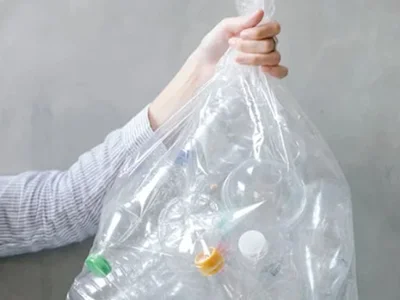The Best Guide To Reclaim Waste
The Best Guide To Reclaim Waste
Blog Article
Indicators on Reclaim Waste You Should Know
Table of ContentsRumored Buzz on Reclaim WasteLittle Known Questions About Reclaim Waste.Reclaim Waste Fundamentals ExplainedHow Reclaim Waste can Save You Time, Stress, and Money.The 5-Second Trick For Reclaim Waste
Explore the types, occurrences, and forms of fluid waste. Residential sewer waste refers to the waste and items from a residential sewage-disposal tank. This sort of waste is developed by human beings in houses, schools, and various other buildings. This only includes sewage-disposal tanks that have a drainpipe area. The appropriate administration and disposal of residential sewage waste need liquid waste to be transferred to a sewer therapy plant where the appropriate approaches and tools are related to cleanse and deal with waste.
Commercial waste frequently includes potential dangers, such as combustible products or a mixture of liquid and solid waste products, and calls for an extra innovative and in-depth disposal procedure. The disposal of business waste usually includes the filtering of waste prior to transport to ensure risk-free and correct disposal. Industrial waste is developed from results and runoff of commercial processes and manufacturing.
This sort of waste can not use the exact same sewer administration transport or procedures as septic or commercial liquids. The hazardous waste administration procedure calls for the evaluation and screening of fluid waste prior to it undergoes the disposal process (liquid waste removal). Drainage waste is the fluid waste that comes from runoff and excess stormwater in extremely inhabited areas or cities
Overflow waste can create contamination and flooding if not managed effectively. Find out more about sewer cleaning and waste management. Guaranteeing proper waste management can avoid disasters and reduce environmental harm. Both people in residential settings and professionals in industrial or production sectors can take advantage of recognizing the procedures and regulations of fluid waste administration.
A Biased View of Reclaim Waste
Call PROS Services today to learn more about our waste administration and disposal services and the correct ways to take care of the fluid waste you create.
(https://www.tripadvisor.in/Profile/reclaimwaste1)This so-called 'wastewater' is not just an important resource yet, after treatment, will certainly be released to our land, rivers or the ocean. Used water from commodes, showers, baths, kitchen sinks, washings and industrial procedures is understood as wastewater.

water utilized to cool down machinery or tidy plant and equipment). Stormwater, a kind of wastewater, is runoff that moves from agricultural and metropolitan locations such as roofs, parks, yards, roads, courses and gutters into stormwater drains, after rainfall. Stormwater flows untreated straight to neighborhood creeks or rivers, ultimately getting to the sea.
How Reclaim Waste can Save You Time, Stress, and Money.
In Queensland, most wastewater is dealt with at sewer treatment plants. Wastewater is carried from residential or commercial websites via a system of sewers and pump stations, referred to as sewerage reticulation, to a sewage treatment plant. City governments construct, keep and run most sewer therapy plants. Operators are licensed under the Environmental Protection Act 1994 to discharge treated wastewater at an acceptable environmental standard into waterways.
The Department of Natural Resources recommends city governments concerning handling, operating and preserving sewerage systems and treatment plants. In unsewered locations, regional governments may require householders to mount specific or family sewage therapy systems to treat domestic wastewater from toilets, kitchens, washrooms and laundries. The Department of Natural Resources authorises using home systems when they are proven to be efficient.
In some new neighborhoods, treatment of some stormwater to eliminate clutter, sand and gravel has actually started utilizing gross contaminant catches. Wastewater therapy takes place in 4 phases: Eliminates solid matter.
Utilizes tiny living organisms understands as micro-organisms to break down and get rid of remaining liquified wastes and fine particles. Micro-organisms and wastes are incorporated in the sludge.
Reclaim Waste - Truths
Nutrient removal is not available at all sewage treatment plants since it needs expensive specialized equipment. Clear liquid effluent generated after treatment might still have disease-causing micro-organisms - liquid waste disposal.

This generally means wastewater has actually to be treated or contaminants removed prior to it can be released to rivers. Many wastewater streams into the sewerage system. Under the Act, more information local federal governments administer authorizations and permits for eco appropriate activities (ERAs) including wastewater releases that may have a local effect. The division administers authorizations and permits to Periods involving wastewater releases that might have a regional or statewide influence.
Our Reclaim Waste PDFs
Or else, samples are taken for research laboratory analysis. Often several examinations are required to develop the degrees of each of the various pollutants such as oils, heavy steels and chemicals in water. Surveillance provides accurate info concerning water quality and can confirm that licence conditions are being fulfilled. The details obtained with monitoring provides the basis for making water high quality choices.
Report this page